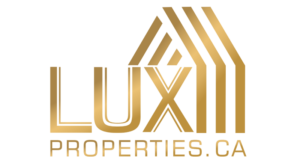Buying Houses Around Lake Ontario
Buying Houses Around Lake Ontario is a dream for many homebuyers. This area offers natural beauty and urban convenience. The lake provides stunning views year-round. Many homes are located close to the water. These properties offer peace and privacy. Buying Houses Around Lake Ontario means enjoying lakeside living every day. You can walk, bike, or relax by the shore. The region includes cities like Toronto, Hamilton, and Burlington. Each city offers unique housing styles and prices. Waterfront homes are in high demand. They provide comfort and long-term investment value. The real estate market here is very active.
Buyers can find condos, townhomes, and detached houses. Many homes feature large windows and outdoor spaces. These properties are ideal for families and retirees. The area is also great for investors. Rental demand near the lake remains strong. Buying Houses Around Lake Ontario ensures access to top schools and healthcare. Public transport and highways are nearby. Daily commuting is simple and fast. The neighborhoods are safe and family-friendly. Parks, shops, and restaurants are easily accessible. The lake adds a peaceful vibe to daily life. People enjoy boating, fishing, and outdoor fun.
Each season brings its own charm to the lake. Property values are rising steadily over time. This makes buying now a smart choice. Whether you’re a first-time buyer or investor, options are available. Real estate agents can help you find the best deals. Buying Houses Around Lake Ontario gives you both beauty and value. It’s more than a house — it’s a lifestyle. The region blends nature, culture, and opportunity. Many new developments are happening along the lake. These areas are modern and well-planned. Start your search today and find your ideal home. Buying here means investing in a better future.
Buying Houses Around Lake Ontario : Available Types And Prices
Lake Ontario is one of the five Great Lakes in North America. It borders southern Ontario and northern New York. The housing market around this lake is incredibly diverse. Some areas have luxury homes, while others offer budget-friendly options. Urban centers attract young professionals and investors. Meanwhile, smaller towns are ideal for families and retirees. Property values rise as demand increases near the lake. Many buyers prefer homes with water views and peaceful surroundings. Lakefront living is considered prestigious and relaxing. However, not all homes near the lake are expensive. There are affordable options depending on the location. Because of rising interest in nature, lake properties are in demand. Consequently, buyers should be prepared to move quickly. The housing market shifts based on season and interest rates. Spring and summer usually see the highest activity. Fall and winter can offer better deals for patient buyers.
Popular Cities and Towns Around the Lake Ontario
Many cities surround Lake Ontario, each offering unique benefits. Toronto is the largest and most expensive area. It has tall condos and vibrant neighborhoods. Meanwhile, Hamilton is more affordable and growing fast. Burlington and Oakville are quiet but upscale. These cities are great for families and professionals. Kingston, on the lake’s eastern side, is charming and historic. Smaller towns like Cobourg, Port Hope, and Bowmanville are also growing. These areas offer a slower pace of life. Still, they have access to modern amenities and transit. Some towns have waterfront parks and walking trails. Others offer boating, fishing, and community events. Because of their charm and affordability, many retirees move to these towns. Newcomers also choose them for peaceful surroundings. Depending on your lifestyle, you can find your perfect spot. Every city or town around the lake has unique housing and pricing.
Types of Houses Available
There is a wide variety of homes around Lake Ontario. Condominiums are popular in big cities like Toronto. These units often include balconies and amenities. Townhouses are more spacious than condos. They usually have multiple floors and small yards. Detached homes are perfect for families needing space. These houses stand alone and offer privacy. Semi-detached homes share a wall with neighbors. However, they are more affordable than fully detached houses. In rural areas, farmhouses and cottages are common. They offer scenic views and large lots. In some regions, duplexes and triplexes are available. These are great for investors and multi-generational families. You can also find heritage homes with classic designs. Additionally, mobile homes are an option in certain towns. Custom-built houses and luxury estates are common near the waterfront. These homes offer elegance, space, and privacy. Choosing the right type depends on your needs and budget.
Condo Prices Near Lake Ontario
Condos near Lake Ontario offer a modern lifestyle. In Toronto, condo prices begin around $400,000. However, luxury units go beyond $1.5 million. These high-end condos include rooftop terraces and lake views. In contrast, Hamilton condos are more affordable. Prices range from $450,000 to $700,000. Cities like Burlington and Oakville also offer mid-range condos. Many buildings include fitness centers, lounges, and pools. Maintenance fees can range from $300 to over $1,000 monthly. Buyers must factor in these extra costs. Smaller towns have fewer condo options but lower prices. In Cobourg or Belleville, condos cost around $350,000. Lakefront condos carry a premium price tag. Because of limited supply, these units sell quickly. Pre-construction condos are also available in some regions. They offer flexible payment plans and new designs. However, delays in construction can happen. Always read agreements carefully before buying. Location and amenities strongly affect condo pricing.
Detached Home Prices Around the Lake
Detached homes are spacious and private. These houses suit families, retirees, and remote workers. In Toronto, detached homes start at $1.5 million. Some homes in desirable neighborhoods reach $3 million. These houses often have modern kitchens and finished basements. In Burlington and Oakville, prices range from $1.2 to $2.5 million. These cities attract professionals and newcomers. Meanwhile, Hamilton offers more affordable detached homes. Prices begin around $750,000 and can reach $1.2 million. In towns like Cobourg and Bowmanville, homes cost $600,000 to $900,000. Lakefront homes are significantly more expensive. These properties offer privacy, space, and breathtaking views. Waterfront homes in Toronto can sell for $4 million or more. In Kingston or Whitby, lakefront prices are lower. However, these homes are still competitive. Many include private docks and gardens. Because supply is limited, waterfront homes sell fast. Interested buyers must act quickly and stay informed.
Townhouse Prices and Locations
Townhouses are popular among families and first-time buyers. They provide more space than condos. Most townhouses include multiple bedrooms and bathrooms. Some have private garages and fenced backyards. In Mississauga and Oakville, prices average $800,000. However, luxury townhouses can exceed $1 million. Hamilton and Oshawa offer more affordable options. Here, prices start from $650,000. In Kingston and Cobourg, townhouses cost around $600,000. Older townhouses may need some renovations. However, newer units often come with smart features. Many townhouses are located in planned communities. These areas include parks, schools, and retail centers. Because of strong demand, townhouse developments are expanding. Pre-construction units may offer better prices. However, delivery timelines can be uncertain. Always compare several listings before choosing. Townhouses combine affordability and functionality. They are a great choice for growing families.
Waterfront Property Trends
Waterfront homes are highly desirable. These properties offer direct access to Lake Ontario. They include private docks, beaches, and gardens. In Toronto, waterfront homes start at $2 million. However, condos near the water start around $900,000. In Oakville and Burlington, lakefront homes exceed $3 million. These homes offer peace and luxury. In Kingston and Cobourg, prices are more affordable. Waterfront houses here begin at $800,000. Still, prices depend on lot size and condition. Lakefront homes are in short supply. As a result, bidding wars are common. Some buyers purchase tear-down properties and rebuild. Renovating old homes near the lake can add value. However, lakeside homes may require extra maintenance. Weather can impact foundations and landscaping. Insurance costs may also be higher. Still, these homes provide unmatched tranquility. Because of their scenic value, lakefront homes are a long-term investment.
Investment Potential Around the Lake
Homes around Lake Ontario are excellent investments. Property values have steadily increased over the years. Waterfront homes especially hold strong resale value. Many cities along the lake have growing populations. Because of this, rental demand stays high. In Toronto, investors buy condos for short-term rentals. Meanwhile, duplexes and triplexes are popular in Hamilton. Student rentals thrive in cities like Kingston and Oshawa. Vacation homes near the lake attract seasonal renters. These rentals bring consistent income during summer months. In smaller towns, lower home prices allow better entry points. Investors often renovate and resell for profit. Transit development improves connectivity to cities. This boosts home values in smaller towns. Many investors also look for land near the lake. They build custom homes or multi-unit buildings. However, zoning laws and permits must be considered. Long-term gains are likely due to ongoing population growth.
Affordable Options Further from Toronto
The farther you go from Toronto, the cheaper homes become. Eastern towns like Bowmanville offer great value. Detached homes here start at $600,000. Condos can be found under $500,000. In Belleville and Quinte West, prices are even lower. Detached homes cost around $500,000. These towns offer quiet living and growing infrastructure. Improved highways make commuting easier. Some residents live outside the city but work in Toronto. This lifestyle is growing due to flexible work schedules. West of Toronto, St. Catharines and Niagara are also affordable. Detached homes start at $550,000 in these areas. Moreover, these cities offer natural beauty and wineries. Public transit is expanding in many regions. GO Transit links smaller towns with Toronto. Because of this, distant towns are now attractive to young buyers. You get more space for a lower price. Budget-conscious buyers should explore beyond major cities.
Buying Tips and Considerations
Before buying, always get pre-approved for a mortgage. This helps define your budget and shows sellers you’re serious. Next, research each area carefully. Check crime rates, school rankings, and amenities. Use online tools to compare home prices. Don’t forget to consider property taxes. Taxes vary by city and can affect long-term costs. If you’re buying near the lake, check flood zones. Some homes may require special insurance. Also, consider maintenance costs for waterfront properties. Work with a local real estate agent. They offer insight into current trends and neighborhoods. Visit homes in person whenever possible. Pictures online don’t show full details. Compare several listings before making a decision. Review offers with a lawyer or broker. Lastly, be flexible. Sometimes, compromises are necessary to stay within budget. A well-planned purchase can bring years of comfort and value.
The Legal Process of Buying Houses Around Lake Ontario
Buying Houses Around Lake Ontario requires understanding legal responsibilities. Each province has its own property laws. In Ontario, laws protect both buyers and sellers. The legal process ensures fair and honest transactions. However, misunderstandings can cause delays or financial risks. Real estate lawyers help navigate these legal complexities. They review contracts, explain obligations, and identify red flags. Property ownership is regulated under provincial acts and local bylaws. Legal compliance is essential from offer to closing. Additionally, title registration and land transfer taxes are governed by law. Ignoring legal steps can lead to disputes. Therefore, understanding the legal structure is vital before proceeding.
Working With a Real Estate Lawyer
A real estate lawyer plays a key role in buying a home. Their involvement begins after a purchase agreement is signed. Lawyers conduct title searches and verify property ownership. They check for liens, easements, or unpaid taxes. Moreover, they ensure the seller has the right to sell. Lawyers also help draft and review legal documents. These documents include the Agreement of Purchase and Sale. The lawyer ensures that deadlines and clauses are fair. Besides that, lawyers communicate with the seller’s lawyer. They arrange mortgage instructions and insurance confirmations. Importantly, lawyers handle closing-day legal tasks. Their guidance prevents costly legal mistakes. Working with a lawyer builds confidence throughout the process.
Reviewing the Agreement of Purchase and Sale
This document is the foundation of your real estate deal. It outlines the terms and conditions of the sale. Buyers must carefully review every detail. A lawyer should explain legal jargon and clauses. The agreement includes price, closing date, and conditions. Conditions may relate to financing, inspection, or insurance. If conditions are unmet, the deal can be cancelled. For example, a failed home inspection may void the contract. Therefore, inserting conditions protects the buyer legally. This agreement becomes legally binding once signed. Consequently, backing out after signing can lead to penalties. Always consult a lawyer before finalizing the document. Clear terms reduce the risk of future issues.
Conducting a Title Search and Due Diligence
A title search confirms the legal owner of the property. It reveals any registered liens or unpaid mortgages. Furthermore, it checks property boundaries and land rights. Due diligence ensures the property matches legal records. Any mistake in records can delay closing. Additionally, due diligence checks zoning and land use. Some properties have restrictions on construction or renovation. Other properties may be part of heritage zones. Therefore, lawyers ensure compliance with local regulations. They also examine rights-of-way or shared driveways. These factors affect future property use. With proper due diligence, buyers avoid legal surprises. Knowing every legal detail upfront prevents stress later.
Understanding Mortgage and Financing Law
Mortgage agreements are legal contracts with your lender. They outline repayment terms and interest rates. Importantly, buyers must qualify under Canadian lending rules. Lenders require credit checks and proof of income. Moreover, laws limit how much you can borrow. The mortgage must be legally registered on the property. A lawyer ensures proper registration with the land registry. The lender also needs property insurance before closing. Additionally, some lenders require a legal review of title. Failing to meet these conditions can cancel the deal. Lawyers help explain lender conditions to buyers. Understanding your mortgage contract protects your financial future. Therefore, legal clarity in financing is essential.
Paying Land Transfer Tax and Other Fees
In Ontario, buyers must pay a land transfer tax. This tax is calculated based on the purchase price. First-time buyers may receive a rebate. However, rules for rebates have strict eligibility criteria. The lawyer calculates this tax before closing day. Other legal fees include registration charges and title insurance. Municipal taxes may be adjusted between buyer and seller. Lawyers ensure accurate distribution of these charges. Additionally, buyers pay legal fees to their lawyer. These range from $1,000 to $2,000 depending on complexity. Some homes are subject to HST, especially new builds. If applicable, lawyers confirm tax requirements. Managing these legal costs avoids surprises on closing day.
Dealing With Conditional Offers and Amendments
Offers can include several legal conditions. These are clauses that must be met before the deal finalizes. Conditions protect buyers during the buying process. Examples include financing approval or a successful home inspection. If a condition fails, the buyer can withdraw. However, deadlines must be respected strictly. Lawyers track these dates and notify parties accordingly. If changes are needed, amendments are added. Both parties must sign any amended agreements. Even minor changes need proper documentation. Legal oversight prevents confusion or invalid agreements. These amendments are legally binding once signed. Consequently, legal accuracy during this step is critical. Lawyers ensure smooth handling of all conditions.
Closing the Transaction Legally
Closing day is the legal final step of the process. On this day, ownership is officially transferred. The lawyer prepares all necessary documents for registration. The buyer signs the final paperwork and mortgage. The seller receives the remaining payment amount. Lawyers send funds to the seller’s lawyer by certified transfer. Once registered, the buyer receives the house keys. Title registration finalizes the property ownership. Legal documents are filed with the Ontario Land Registry. The lawyer also gives the buyer a final report. This report includes a deed, title insurance, and other legal proof. Closing delays can occur without proper legal preparation. Therefore, legal organization ensures a smooth transition.
Title Insurance and Legal Protections
Title insurance protects against future ownership disputes. It also covers hidden title defects or fraud. Mortgage lenders often require this insurance. Buyers can purchase their own policy for extra protection. A lawyer arranges this insurance before closing day. Although optional, title insurance offers legal peace of mind. It protects against problems that appear after purchase. For example, unknown liens or previous ownership claims. It also covers errors in public records or legal documents. Title insurance stays valid as long as you own the home. This coverage is a low-cost way to avoid legal costs. Lawyers explain the scope and limitations of this policy. It adds an extra legal safety net for buyers.
Final Legal Checklist and Post-Purchase Steps
After buying, certain legal steps still remain. The lawyer ensures the final title is correctly registered. The buyer must also notify utility companies. Property tax accounts must be updated. The city must recognize the new owner for billing. Additionally, keep all legal documents in a safe place. Your lawyer can provide digital or printed copies. If issues arise later, contact your lawyer for advice. You may also receive notices about nearby construction or land changes. These affect property value and usage. Staying informed helps you protect your legal rights. Ownership brings responsibility, so understanding the law is vital. Legal awareness strengthens your position as a homeowner.


